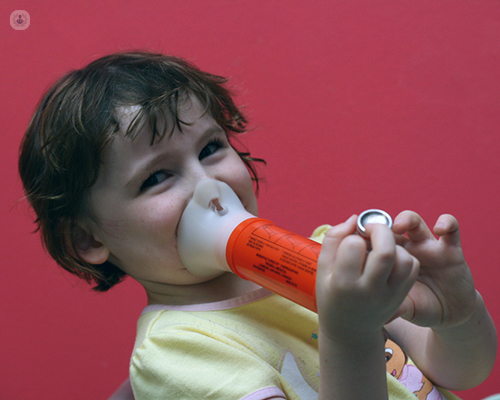Childhood asthma guidelines for parents
Autore:Asthma is a common condition that afflicts adults and children alike, but how does childhood asthma develop and what are the signs, as parents, to look out for? Dr Robert Boyle is a paediatric allergist and all-around expert in treating asthma, and here he shares the key points about childhood asthma that parents and caregivers should be aware of.
How serious is childhood asthma?
Childhood asthma is pretty common and can affect a child’s quality of life significantly by limiting some activities, causing troublesome symptoms and impacting on school attendance.
Can childhood asthma be difficult to diagnose? How is it diagnosed?
There is no single diagnostic test for asthma, which can often make diagnosis difficult. Children with asthma suffer from episodes of wheezing and breathlessness, especially when they suffer from a respiratory infection. They may complain of cough, chest tightness and feeling tired. Breathing tests, clinical examination and allergy tests can all be helpful in making a secure diagnosis of childhood asthma.
What are early signs of childhood asthma?
Many children have at least one episode of wheezing before they reach school age, however, much of this seems to be different to asthma, because there is not such a strong link with allergy and many of the asthma treatments don’t work in preschool children. However, some children with asthma start wheezing during the preschool years and continue wheezing when they suffer from respiratory infections at a later age.
How is childhood asthma treated?
The main asthma treatments at the moment are inhalers. These can be broadly divided into ‘relievers’, to be used during an asthma attack to help open up the breathing tubes; and ‘preventers’, which are used on a daily basis to reduce the chance of an asthma attack occurring or other asthma symptoms. These treatments are only partially effective, and they generally don’t have long-term benefits on lung growth or the natural course of asthma. There is an increasing number of alternative treatments for asthma, which are used either in place of or in addition to inhalers, usually for children with more severe asthma.
Does childhood asthma progress into adulthood as well?
Many children who wheeze in early life have reduced wheezing as they grow into adulthood, but children with severe asthma during their school years do usually have continued episodes of wheezing during adult life.
Read more: Treating childhood asthma
Dr Boyle is available for appointments at his Harley Street Clinic in Marylebone, London and the New Malden Diagnostic Centre in south London.



